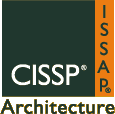A Global C4
Chief Security Officer Journal
A Global Career and Data Warehouse for Security Professionals
A Global C4
![]() Series Publication
Series Publication
Chief Security Officer Journal
A
Global Career and Data Warehouse for Security Professionals
On-line
Educational Opportunities for the
Security
Professional





1. Stanford University -
Introduction
to Cryptography
2. Iowa State University -
Graduate
Certificate
in Cybersecurity
3. George Washington University -
Master of Engineering (M.Eng) in Cybersecurity Policy & Compliance
(endorsed by
NSA)
4. James Madison University -
M.S. in
Computer Science; INFOSEC Concentration (endorsed by
NSA)
5. Columbia University -
M.S.
Computer Science - Computer Security
6. University of Southern California -
Master
of Science in Computer Science (Computer Security)
7. Stanford University -
Advanced
Computer Security Certificate
8. Boston University -
Master
of Science, Computer Information Systems - Security
(endorsed by
NSA)
9. University of London -
Master
of Science, Cybersecurity
10. Purdue University -
Certificate;
Information Security
11. Purdue University -
Doctor of Technology (Cybersecurity Thesis)
12. Stanford University -
Computer
& Network Security
13.
Carnegie Mellon University -
M.S.
- Information Technology - Information Assurance & Security
14.
Oregon State Universtity -
Undergaduate Certificate; Cybersecurity
15.
Georgia Tech -
Master of Science - Information Security
16. Seton Hall -
Certificate in Privacy Law and Cyber Security
17.
University of Massachusetts -
Graduate Certificate; Information Security
18.
University of Washington -
Certificate; Cybersecurity
19.
Penn State -
Master of
Professional Studies; Cybersecurity Analytics & Operations
20.
NYU Poly -
Master of Science
- Cyber Security
21. Carnegie Mellon University -
Certificate - CERT Insider Threat Program Manager
22. Boston University -
Information Security Graduate Certificate
23. Universtity of Fairfax -
Doctorate of Information Assurance
24. James Madison Universtity -
M.S. Computer Science (Information Security)
25. University of Texas @ Austin -
M.S. Information Security and Privacy
26. University of Southern California -
Privacy Law and Cybersecurity Certificate
27. Cornell University -
System Security Certificate
28. Massachusettes Institute of Technology (MIT) -
Professional Certificate in Cyber Security
29. Harvard University -
Online Short Course - Cyber Security: Managing Risk in the Information Age
30. University of California - Irvine -
Certificate: Cyber Security
31. Massachusettes Institute of Technology (MIT) -
Cybersecurity
for Managers: A Playbook
32. University of Oxford -
Cybersecurity
for Business Leaders Programme
33. Georgetown University -
Graduate Certificate in Cybersecurity Risk Management
34. Harvard University -
Graduate Certificate; Cybersecurity
35. University of Virginia -
Graduate Certificate; Cybersecurity Management
Articles of Interest for
Security Practitioners
DoDM
5200.01, Volume 4; Enclosures 3 and 4
- “Controlled UNCLASSIFED Information (CUI)” -
Defense Contractors Challenged to Define Applicability and a Realistic, Cost
Effective Compliance Strategy
Does Volume 4 of the Manual Apply
to Defense Contractors or Provide Adequate Depth of Detail to Implement Physical
and Technical Security Controls for CUI?
C.L. Freeman, CISSP-ISSAP
October, 2012
The Challenge:
Shortly after the U.S. Department of Defense (DoD)
announced DoD
5200.01-R had been superseded by
DoDM 5200.01
and the Defense Security Service (DSS)
posted Volumes 1-4 to their website , several defense contractors pro-actively
took steps to estimate cost and internal policy changes they may need to
eventually implement to protect U.S. government Controlled UNCLASSIFIED
Information (CUI)
under their cognizance (as defined in Volume 4).
Several firms quickly concluded
Volume 4, does NOT apply to defense contractors (unless formally declared
in the DFAR, a contract
DD-254
or other contracts vehicle
since protection of CUI is not addressed in the
NISPOM
and DSS has not, as of October, 2012, formally declared, in writing,
mandatory contractor compliance is required.
Other
defense
contractors have
argued it doesn’t make sense DSS would post a DoD policy on their website that
doesn’t apply to defense contractors when their primary mission is “support
of implementation of all security policy and guidance applicable to Defense
Contractors”. They also pointed out DSS
declares on their website they are revising their
CDSE training curriculum,
utilized by Defense Contractors, to align
with DODM Volumes 1-4.
Scope of DoD
Information and Contractor Managed Systems Involved:
When we look closely at Volume 4, Enclosure 3, you’ll notice hardcopy and
electronic DoD designated CUI information stored, processed or transmitted is
considered in scope. The question at hand is “are contractor or employee owned
and operated computing systems, mobile devices and applications that process DoD
CUI information also in-scope? The answer to this question is of significant
importance when we consider U.S. and foreign owned defense contractors have a
large volume of FOR OFFICIAL USE ONLY or other CUI in e-form linked to active
and in-active U.S. government contracts.
Strategies
Forward: As noted above, several firms have decided
to do nothing in the short term concerning implementation of Enclosure 3 and 4
in Volume 4 because they believe the policy only applies to the DoD (unless
specifically declared in the DFAR or contract DD-254).
Other defense firms are pro-actively breaking Enclosures 3
and 4 down into individual requirement statements they can apply to author test
cases they’ll eventually use to verify compliance if DSS formally communicates
Enclosures 3/4 are in-scope for the
defense industrial base and other
defense contractors obligated to comply with DFAR. They are also classifying
each derivative requirement they develop as a “management, operational, physical
or technical” control. Once this task is complete, they are evaluating their
current corporate information security policy, that defines protection
requirements for firm or partner / subcontractor proprietary information, to
determine where there are similarities between the two requirements baselines.
They’ll then take the final step of developing and
posting internal corporate guidance concerning protection of DoD CUI that maps
directly between Enclosure 3 and 4 requirements and their corporate information
protection policy with the understanding customer defined protection
requirements that exceed the noted protections take precedence.
Is
a Certified Information Systems Security Professional (CISSP) Certification
Worth The Time, Money and Effort?
C.L.
Freeman, CISSP-ISSAP


